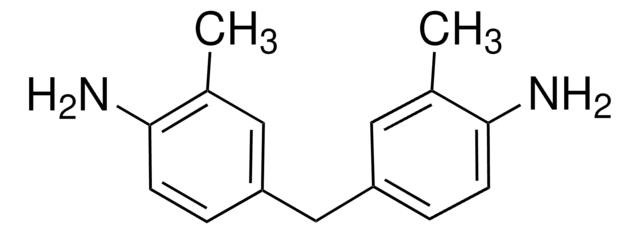31618
2-Naphthylamine
analytical standard
Synonym(s):
β-Naphthylamine, 2-Aminonaphthalene
About This Item
Recommended Products
grade
analytical standard
Quality Level
shelf life
limited shelf life, expiry date on the label
technique(s)
HPLC: suitable
gas chromatography (GC): suitable
bp
306 °C (lit.)
mp
111-113 °C (lit.)
density
1.061 g/mL at 25 °C (lit.)
application(s)
cleaning products
cosmetics
food and beverages
personal care
format
neat
SMILES string
Nc1ccc2ccccc2c1
InChI
1S/C10H9N/c11-10-6-5-8-3-1-2-4-9(8)7-10/h1-7H,11H2
InChI key
JBIJLHTVPXGSAM-UHFFFAOYSA-N
Looking for similar products? Visit Product Comparison Guide
General description
Application
Caution
signalword
Danger
hcodes
Hazard Classifications
Acute Tox. 4 Oral - Aquatic Chronic 2 - Carc. 1A
Storage Class
6.1A - Combustible acute toxic Cat. 1 and 2 / very toxic hazardous materials
wgk_germany
WGK 3
ppe
Eyeshields, Gloves, type P3 (EN 143) respirator cartridges
Choose from one of the most recent versions:
Already Own This Product?
Find documentation for the products that you have recently purchased in the Document Library.
Customers Also Viewed
Our team of scientists has experience in all areas of research including Life Science, Material Science, Chemical Synthesis, Chromatography, Analytical and many others.
Contact Technical Service










